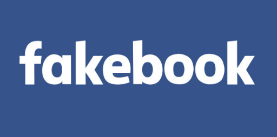 Responding to a request from the US Trade Representative (USTR), various copyright holder groups have submitted their overviews of ‘notorious’ markets in recent weeks.
Responding to a request from the US Trade Representative (USTR), various copyright holder groups have submitted their overviews of ‘notorious’ markets in recent weeks.
These annual submissions help to guide the U.S. Government’s position toward foreign countries when it comes to copyright enforcement.
We previously covered the submissions from the RIAA, MPAA, and ESA, who all listed a wide variety of pirate sites including torrent, streaming, MP3-downloaders, and ROM archives.
Late last week another submission caught our eye. While the official deadline had already passed, the Swiss company Maus Frères submitted an overview of problematic sites that have a bad reputation when it comes to copyright infringement. Counterfeiting to be precise.
Maus Frères has a stake in several major brands including Lacoste and Gant, and it highlights Facebook as a “notorious” market. We generally don’t cover counterfeit goods, but since it’s part of the same “notorious markets” process, it adds some relevant context here.
“Very large volume of obvious Lacoste fakes found on Facebook,” the Swiss company writes in its submission.
“Large number of Lacoste look-alike pages, using our trademarks, logos and images without authorization. Based on a visual analysis of the first 100 posts when searching ‘Lacoste bag’, 84% of posts were offering counterfeit bags for sale.”
Maus Frères notes that thousands of infringing links are reported every year, adding that Facebook takes no “obvious” proactive measures to deal with the problem. The image matching technology, for example, is not available to target fake goods, and repeat infringers are not properly addressed.
“No obvious penalties for repeat infringers, users have been reported up to 6X on separate occasions. Suspended accounts have been found to come back under similar new usernames. Counterfeiters can post to private groups and can’t be monitored,” the company informs the US Government.
Facebook is not the only major social network reported as a notorious market. The Russian equivalent VK has been called out as a relatively safe haven for pirates for years.
That said, there is a problem with Facebook’s listing. The USTR’s notorious markets overview is only meant for non-US companies. This means that Facebook, and other US-sites listed by the Swiss company, will likely be ignored.
This brings us to another report, submitted by the American Apparel & Footwear Association, which counts popular brands including Adidas and Levi Strauss as members. The organization included Amazon in its overview of notorious copyright-infringing markets. However, it specifically listed the foreign stores.
“Members consider Amazon.co.uk, Amazon.ca, and Amazon.de to be the most unresponsive and non-compliant Amazon marketplace extensions,” the Association wrote in its submission, summing up several concerns including fake brands.
“Members report coming across products that use their trademarks and brand names to identify product, but that are in no way associated with the actual brand. These ‘fake brands’ infringe on registered trademarks.”
In some cases these fake brands and counterfeit stores are removed, only to reappear under a new account. This sounds very similar to the problems copyright holders have with classic pirate sites.
Amazon’s listing is particularly sensitive as the company has been involved in the Alliance for Creativity and Entertainment (ACE), a relatively new anti-piracy coalition. Together with Hollywood’s major studios and other players, Amazon committed to tackling online copyright infringement.
While the current comments are about counterfeiting, not piracy, being reported as a “notorious market” certainly doesn’t look good.
While Facebook is unlikely to end up on a list of foreign notorious markets, it will be interesting to see what the USTR does with the comments regarding Amazon’s foreign stores.





